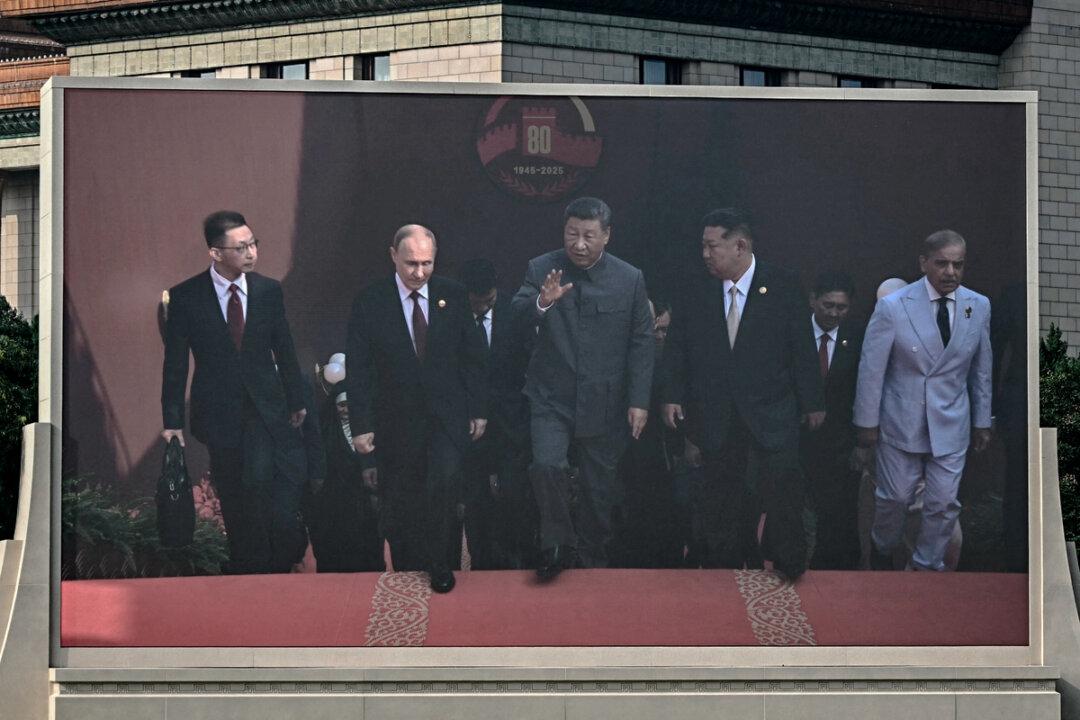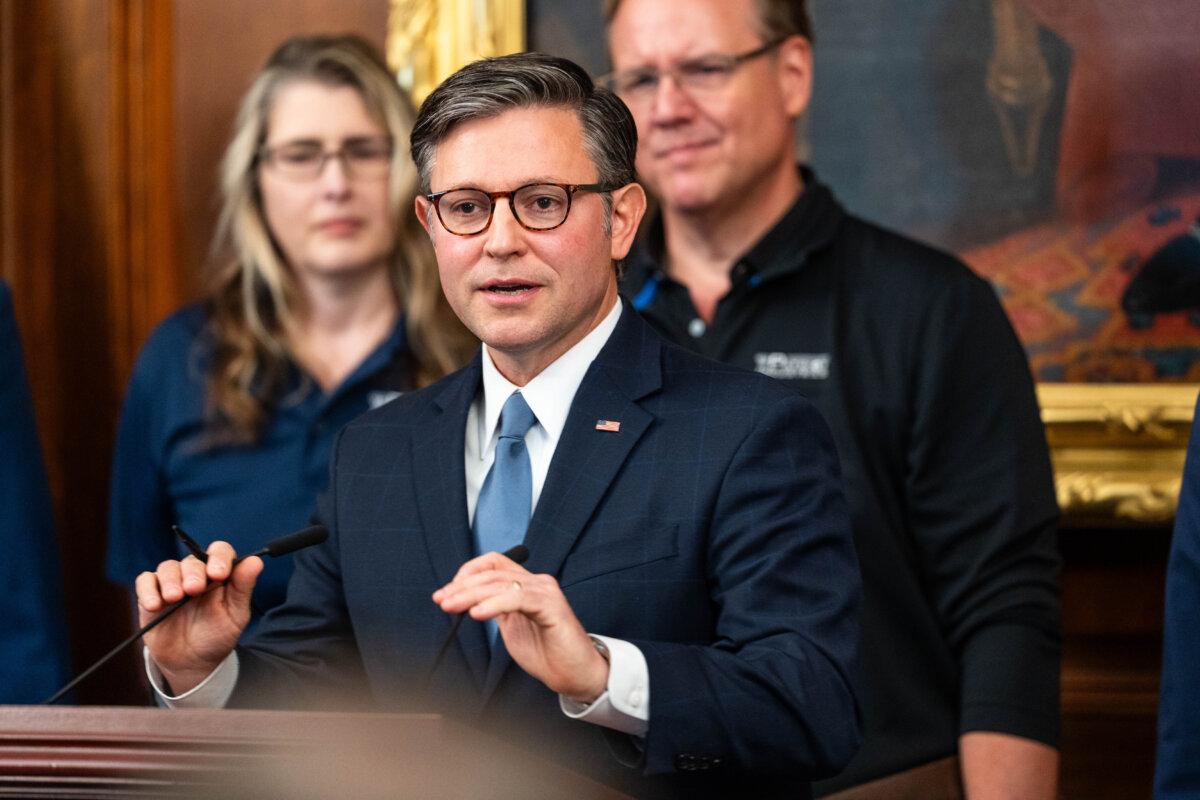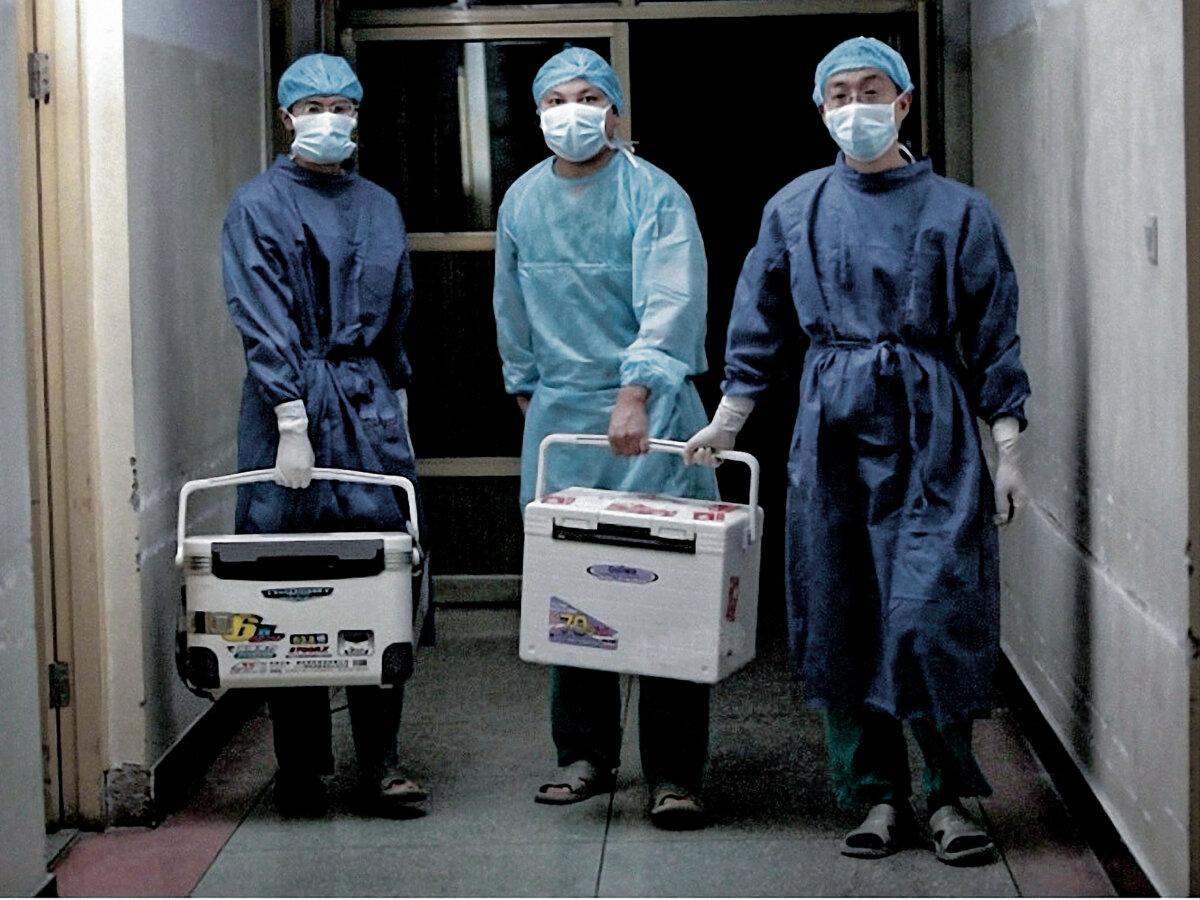In the Press...
The Epoch Times article featuring Smith's commentary'Putin, Xi Hot Mic Moment on Organ Transplants Underscores Concerns Over Organ Harvesting in China''House Speaker Mike Johnson (R-La.) said the conversation adds new urgency for the United States to address forced organ harvesting.'
By Eva Fu
Published September 3, 2025 As the leaders of China and Russia walked shoulder to shoulder on Sept. 3, a hot mic captured them discussing increasing longevity through organ transplants, possibly extending one’s lifespan to 150 years. The conversation, livestreamed through Chinese state media to billions online and on television, made international headlines as China watchers scrutinized the implications, with many pointing to longstanding concerns about forced organ harvesting. The moment came as Russian President Vladimir Putin, Chinese leader Xi Jinping, and North Korean leader Kim Jong Un ascended the Tiananmen rostrum in Beijing for a massive military parade commemorating World War II.
“As biotechnology advances, human organs can be continuously transplanted, allowing us to become younger and younger, perhaps even achieve immortality,” Putin replied through his interpreter in Mandarin, gesturing with his fingers as he spoke. The feed then cut to a wide shot of Tiananmen Square.
“The fact that they were caught in a hot mic ... is very telling. “It tells you where their worldview is, in contrast to ours.” Nina Shea, director of the Center for Religious Freedom at Hudson Institute and a seven-term commissioner on the U.S. Commission on International Religious Freedom, echoed Johnson’s view. “This unguarded conversation between these two tyrants lends credence to our concerns that they are creating a real-life science fiction dystopia by forced organ harvesting from those they see as political enemies,” she told The Epoch Times. A human rights group in 2022 found hundreds of Chinese doctors to have trained at U.S. institutions. Shea urges Congress to take action and end such training immediately.
“That Xi and Putin are scheming to live forever through organ transplantation only adds to the urgency,” she said.
The reference to a 150-year lifespan had earlier surfaced in 2019 in a one-minute clip from a hospital boasting about a top-notch system to extend the lifespan of Chinese leaders.
The video, allegedly released by China’s largest comprehensive military hospital, the Chinese People’s Liberation Army General Hospital, said that Chinese leaders, on average, live to 88 years old, far surpassing their counterparts in the West. One key feature of this health system is restoring organ functions, according to the video. Amid a COVID-19 wave in 2023, the obituary of a former Chinese deputy cultural minister again brought the topic to the fore.
In giving condolences, a Chinese official wrote that 87-year-old Gao Zhanxiang, whom he described as having a “sharp mind and a booming voice,” had “replaced many organs in his body” as he “tenaciously fought with illness,” to the point where Gao himself said that “many components [were] not his own anymore.” The source of these organs remains a question. In 2006, several eyewitnesses came forward to The Epoch Times alleging that prisoners of conscience were being killed for their organs in secret facilities in China. The targets, they said, were detained practitioners of Falun Gong, a meditation practice that the Chinese regime perceives as a threat to its rule. The eyewitnesses described doctors removing organs, such as corneas, and cremating the bodies to cover up the evidence.
While China, under mounting international pressure, set up an organ donation system in 2015, experts who study Chinese organ donation data have said that they are “too neat to be true.” According to a 2019 study published in the scientific journal BMC Medical Ethics, the statistics, unlike those of 50 other countries, fit unusually well to a mathematical formula. The only explanation for that is data manipulation, the authors said.
The same year, the London-based China Tribunal concluded after a year-long investigation that forced organ harvesting was still taking place in China on a significant scale. Falun Gong practitioners, according to the tribunal, were the primary victim group, with other persecuted minorities such as Uyghurs in the Xinjiang region, Tibetans, and House Christians also at risk.
The regime has demonstrated its willingness and capacity for doing anything to maintain power, said Rep. Chris Smith (R-N.J.). He is a vocal critic of Beijing’s organ transplant practices and is seeking to counter the abuse through legislation. “My own argument has been that from Xi Jinping on down, anybody in the higher echelon especially in the Chinese Communist Party will look to steal somebody else’s internal organs, through coercion, through death, to extend their life,” Smith told The Epoch Times. “I can’t think of a more selfish and barbaric act. “If they did it through voluntary organ transplantation, which is, I think, completely ethical, that would be fine. There’s nothing voluntary about this.”
The U.S. State Department, the European Parliament, and a panel of U.N.-affiliated human rights experts have voiced alarm over the Chinese regime’s forced organ harvesting in recent years.
Lawmakers in the 119th U.S. Congress have voted twice to pass bills to impose sanctions on perpetrators of organ transplant abuse in China. Two bills are now awaiting Senate action.
In August, eight state senators from Texas wrote to Sen. Ted Cruz (R-Texas), a lead sponsor of the Falun Gong Protection Act, urging him to push the bipartisan legislation forward. The state was the first of five in the country to enact laws to block health insurance coverage for organ transplants performed in China.
Johnson, at the briefing, said that Xi and Putin’s conversation on this topic heightens the gravity of the issue. “If the leaders are talking about it, it should alarm us,” he said. “It’s a persecuted religious minority that they’re using to harvest organs from. “The United States—we’re going to stand for morality and ethics, and we’re going to stand against that. There’s legislation, as you know, that would address it, and we might need to put that at the top of the priority list, if that’s what’s happening.” |






